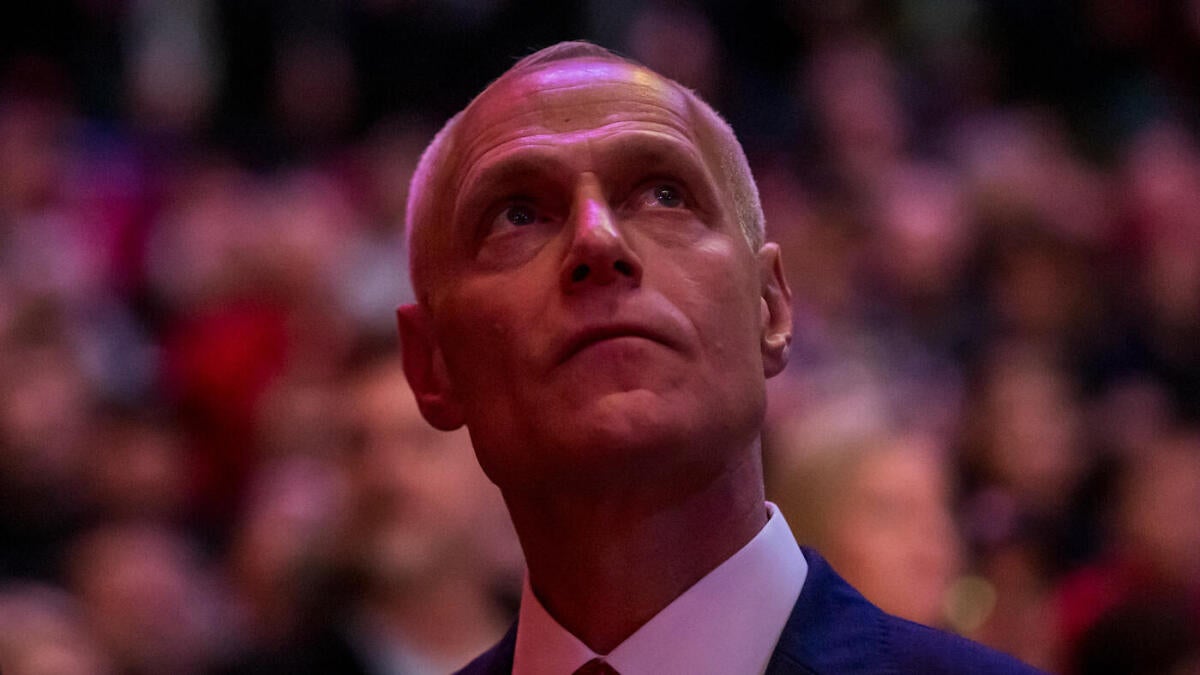Brett Yormark: The Architect Reshaping College Athletics
A Commissioner Who Demands Attention
Brett Yormark doesn’t just occupy the role of Big 12 commissioner—he dominates the conversation around it. Since taking the helm in 2022, Yormark has become one of the most talked-about figures in college sports, a disruptor whose aggressive tactics have simultaneously strengthened the conference and divided opinions. His tenure has been defined by bold moves, billion-dollar deals, and a leadership style that leaves no room for neutrality.
The Big 12’s Aggressive Expansion
Securing the Conference’s Future
Yormark inherited a conference in crisis. The impending departures of Oklahoma and Texas to the SEC threatened to destabilize the Big 12, leaving its remaining members vulnerable. Instead of retreating, Yormark went on the offensive. His swift acquisition of BYU, Cincinnati, Houston, and UCF in 2023 wasn’t just a response—it was a statement. The Big 12 wasn’t just surviving; it was expanding its reach.
Then came the Pac-12’s collapse. Sensing opportunity, Yormark pounced, bringing Colorado, Arizona, Arizona State, and Utah into the fold. These moves didn’t just fill gaps—they transformed the Big 12 into a coast-to-coast powerhouse, ensuring its relevance in the new era of super-conferences.
The Financial Playbook
Yormark’s real genius lies in his ability to monetize chaos. His negotiation of a $2.28 billion media rights deal with ESPN and Fox wasn’t just a win—it was a lifeline. In an era where conference survival hinges on TV revenue, Yormark secured the Big 12’s financial future, ensuring competitive payouts for member schools.
The Controversies That Follow
A Leadership Style That Divides
Yormark’s approach isn’t just assertive—it’s confrontational. Critics argue that his tactics border on ruthlessness, alienating traditionalists who prefer a more diplomatic approach. His public clashes with other conferences, particularly during realignment battles, have painted him as a disruptor who thrives on chaos.
Some athletic directors privately question whether his win-at-all-costs mentality aligns with the collegiate model. When Oklahoma and Texas announced their SEC move, Yormark’s response wasn’t conciliatory—it was combative. He immediately targeted their remaining revenue shares, a move seen as punitive by some, pragmatic by others.
The Risk of Overextension
Expansion brings growing pains. Integrating four new schools in 2023 was challenging enough; adding four more in 2024 risks logistical nightmares. Scheduling, travel costs, and maintaining competitive balance are real concerns. Yormark’s vision of a 16-team super-conference is ambitious, but skeptics wonder if the Big 12 is stretching itself too thin.
The Impact on College Sports
Redefining Conference Loyalty
Yormark’s realignment moves have accelerated the erosion of traditional conference affiliations. The idea of regional loyalty is fading, replaced by a mercenary approach where schools chase stability and revenue. While this shift was already underway, Yormark’s aggressive expansion has normalized it, forcing other conferences to adapt or risk obsolescence.
A New Blueprint for Commissioners
Love him or hate him, Yormark has rewritten the playbook for conference leadership. His willingness to act decisively in turbulent times has set a new standard. Other commissioners now face pressure to match his boldness or risk being left behind. In an industry resistant to change, Yormark has become an unlikely catalyst for evolution.
The Road Ahead
Contract Extension and Long-Term Vision
The Big 12’s decision to extend Yormark’s contract through 2030 signals confidence in his strategy. But challenges remain. The College Football Playoff expansion creates new opportunities, but also new competition. Can the Big 12 consistently secure playoff bids in a landscape dominated by the SEC and Big Ten?
The Legacy Question
Yormark’s ultimate impact is still unfolding. If the Big 12 thrives as a national conference with sustained competitiveness, he’ll be remembered as a visionary. If expansion leads to instability or diluted rivalries, critics will label him a reckless gambler. One thing is certain: Yormark doesn’t care about being liked—he cares about winning.
Conclusion: The Disruptor’s Dilemma
Brett Yormark isn’t just managing a conference; he’s reshaping an industry. His aggressive tactics have saved the Big 12 from irrelevance, but they’ve also ignited debates about the soul of college sports. In a world where survival demands boldness, Yormark’s approach may be exactly what the Big 12 needs. Whether history judges him as a savior or a provocateur, one truth remains: in the era of Brett Yormark, the Big 12 refuses to be ignored.











